
DHA Director and Senior Enlisted Leader visit Branch Health Clinic Everett
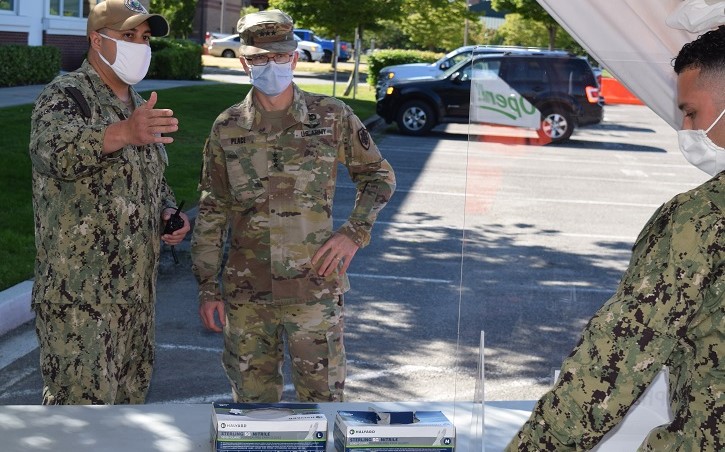
Army Lt. Gen. Ronald Place, Defense Health Agency (DHA) director, receives a summary from Hospital Corpsman 2nd Class Milo Mata on Branch Health Clinic Everett's drive through pharmacy option. The outdoor service was implemented during the current on-going pandemic outbreak as a strategy to limit the amount of foot-traffic into the clinic, assist with the overall response to the COVID-19 pandemic by helping to reduce the spread of the virus and better protect the health and well-being of patients and staff.
There was energy, ingenuity, and initiative on display at Naval Hospital Bremerton’s (NHB) Branch Health Clinic Everett as Army Lt. Gen. Ronald J. Place, Defense Health Agency (DHA) director toured the facility and met with staff.
The familiarization visit gave Place and DHA senior enlisted leader, Army Command Sgt. Maj. Michael Gragg the opportunity to meet and greet with the staff, and discuss health care delivery and challenges during the ongoing pandemic outbreak.
As director of the DHA, Place leads a joint, integrated combat support agency which direct supports Army, Navy and Air Force medical service providing a medically ready force and ready medical force to combatant commands in peace and war. “We support the services. That’s what we do. That’s our job. As leaders, part of our job is to look at the issues today and tomorrow and mitigate those. We are aware there are challenges. We’re always looking and asking, ‘is there a better way to do this?’” explained Place.
NHB, along with Branch Health Clinics Bangor, Everett and Puget Sound Naval Shipyard transitioned administration and management oversight to DHA in the fall of 2019.
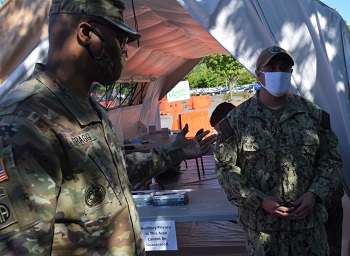
DHA senior enlisted leader, Army Command Sgt. Maj. Michael Gragg extends a greeting to Hospital Corpsman 2nd Class Milo Mata, assigned to Naval Hospital Bremerton's Branch Health Clinic Everett during a visit to the command with U.S. Army Lt. Gen. Ronald J. Place, Defense Health Agency director.
Three of the clinic’s staff members – Navy Lt. Cmdr. Steven M. Hill, Hospital Corpsman 2nd Class Jefferson Green, and Hospital Corpsman 3rd Class Alyssa J. Maple – were recognized by Place and Gragg for notable individual achievements.
“One of the hidden benefits of being assigned to a small clinic is the true leadership responsibilities that even relatively junior enlisted and officer can and do perform and make such a positive difference,” Place stated.
Maple was recognized for her work after being hand-selected to represent the clinic in the Puget Sound Population Health working group, handling the duties of implementing the DHA Disease Management program. Maple trained 20 staff members about the program’s resources and coordinated care for at-risk patients enrolled in the program. She was integral in communicating with 2,000 beneficiaries using the DoD’s electronic health record, MHS GENESIS Patient Portal, to help manage their condition and explain resources during COVID-19.
“I’m a general surgeon by trade. I see patients after something has happened. It’s the smart people in Population Health who convince our patients (to modify behaviors) before something happens,” commented Place.
As a physical therapy technician, Green was recognized for standardizing physical therapy outcomes by converting 12 DHA approved tri-service post-operative protocols into a new, editable format with comprehensive auto-text templates in MHS GENESIS, thus reducing documentation time. “We don’t need cookie-cutter medicine, but we can standardize best practices and remove administrative hurdles,” noted Place.
Hill was acknowledged for leading the clinic’s COVID-19 medical response in support of Naval Station Everett. He developed a process of regular status checks and infection control protocols that supported the needs of 150 quarantined and isolated Sailors, including the medical oversight of a COVID-19 positive patient which ensured a full recovery. On top of that, he lead a multidisciplinary team which improved operational readiness by reducing the length of Medical Board status for Sailors, and collaborated with regional partners for home sleep study units cutting down on travel, cost and time for active duty service members.
“When I read Lieutenant Commander Hill’s write-up, my first thought was the old saying, ‘if you want something done, find the busiest person you know and have them do it, because you know it’ll get done,’” stated Place. “And Hill’s mentoring and advising to line leaders during COVID-19 is the type of expertise that can’t be thanked for enough.”
BHC Everett staff continue to focus on helping to stop the spread of COVID-19 by protecting military and civilian personnel and their families, safeguarding national security capabilities and supporting whole-of-nation response.
BAMC adapts to support greater San Antonio community during COVID-19 pandemic
Article
7/15/2020
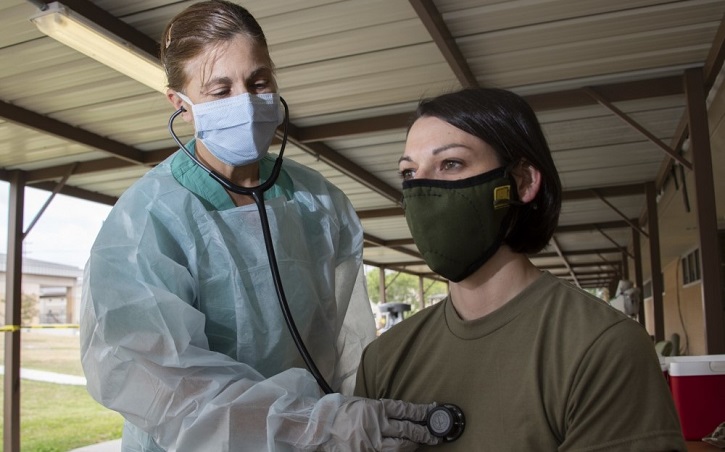
BAMC is the only Level I Trauma Center within the Department of Defense and one of two within San Antonio.
DoD Leverages GEIS Respiratory Surveillance to Respond to COVID-19
Article
7/15/2020
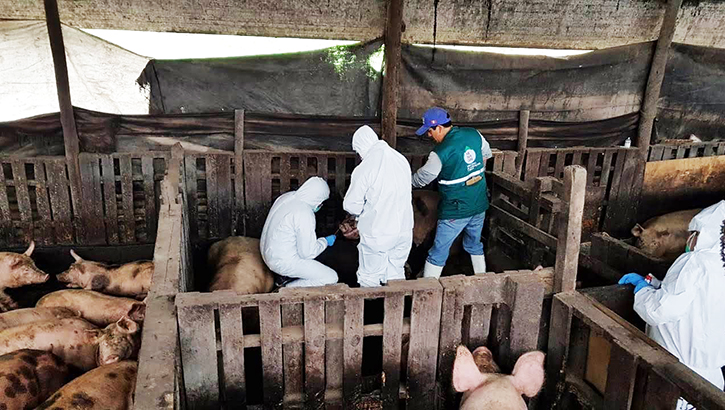
AFHSB’s Global Emerging Infection Surveillance (GEIS) program manages a global laboratory network to detect emergent diseases and track respiratory illnesses such as influenza.
Innovative RX pad creates path for prescribing mobile health technology
Article
7/15/2020
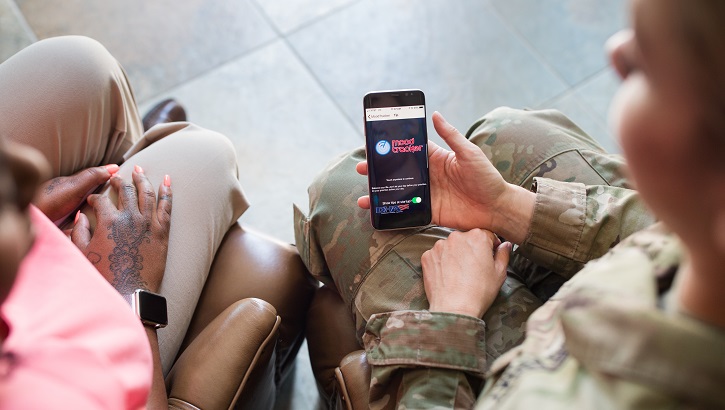
Technology and healthcare are constantly evolving fields.
Applying COVID-19 innovations to the future of MHS medicine
Article
7/14/2020
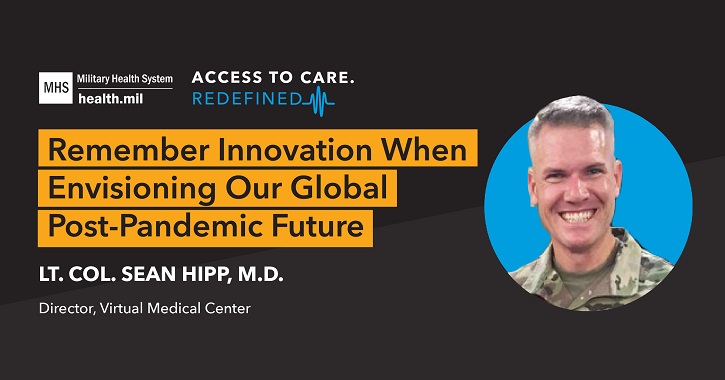
COVID-19 has already irrevocably changed how we deliver care and will continue to do so.
Life support training continues for MHS clinical staff
Article
7/14/2020
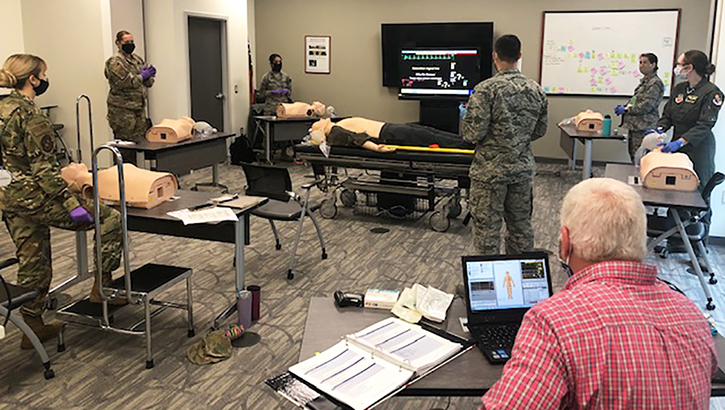
How do clinical staff social distance and deliver CPR training?
U.S. military deploys to Texas and California in support of COVID-19 operations
Article
7/14/2020
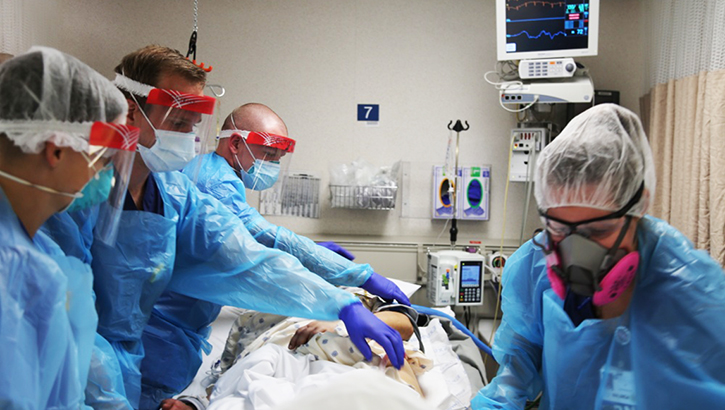
[A]pproximately 740 Department of Defense medical and support professionals from the Army, Navy and Air Force deployed to support COVID-19 operations in Texas and California.
COVID-19 Asymptomatic Testing Clinic opens at NMRTC Bremerton
Article
7/13/2020
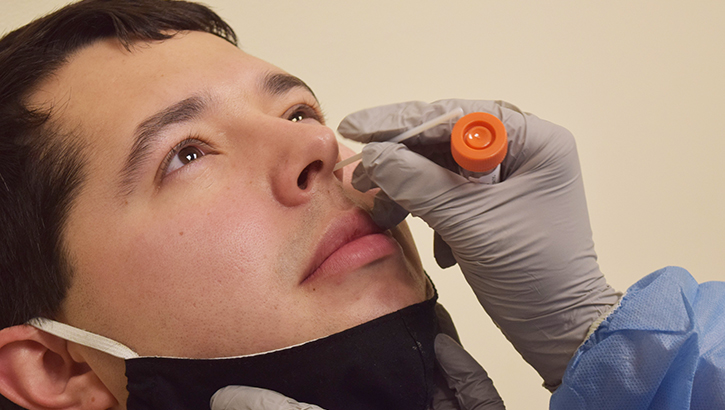
[S]tanding up the CAT clinic will assist in identifying asymptomatic COVID-positive individuals and assist the continual effort to stop the spread of the pandemic.
Convalescent Plasma Donation PSA featuring Lt. General Place
Video
7/10/2020
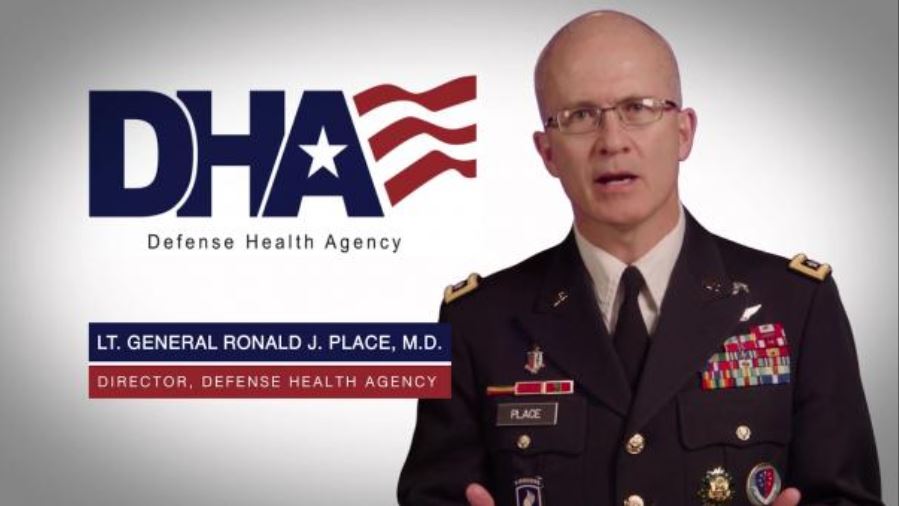
Lt. Gen Place asks servicemembers DoD-wide to consider dontating plasma in the fight against COVID-19.
For some, working from home brings neck and back pain
Article
7/10/2020
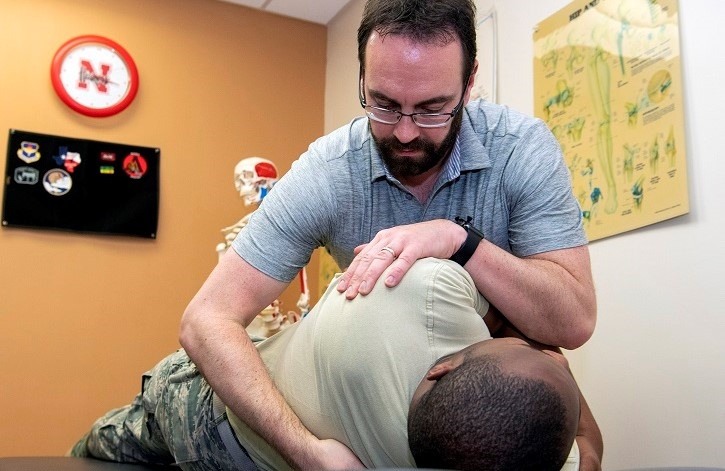
"[T]he most common complaint of teleworkers is neck and upper back pain between the shoulder blades."
DHA's new app assists providers with treating infectious diseases
Article
7/10/2020
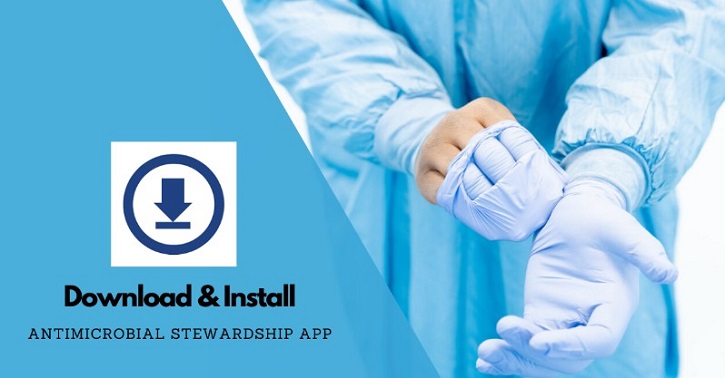
This progressive web application provides faster updates to content and function than traditional apps.
New Invention Helps Protect Healthcare Workers During COVID-19 Pandemic
Article
7/9/2020
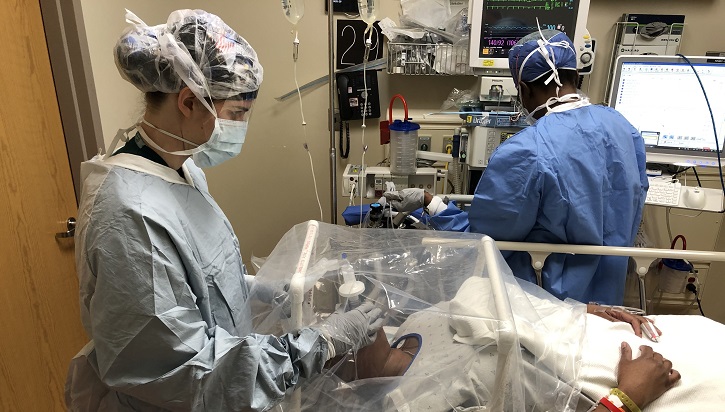
"[T]he team realized that while the CAMIC would function well for tracheostomy, its true use would be for intubation..."
Defending the Homeland: Fort Knox Safety Official Donates COVID-19 Convalescent Plasma to Help Others
Article
7/8/2020
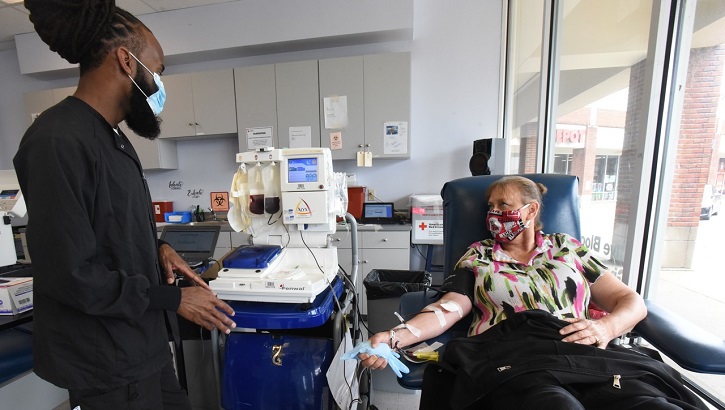
[T]he process involves a machine that uses three bags to collect and separate the plasma from the blood.
Summer’s here – stay safe!
Article
7/8/2020
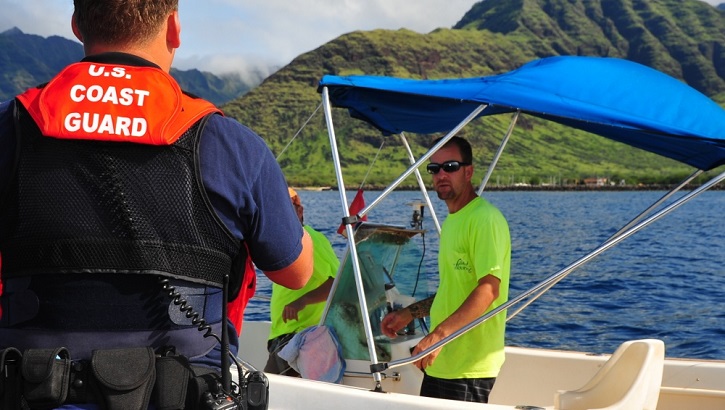
Remember these tips while enjoying the summer
Combat stress techniques help military providers during COVID pandemic
Article
7/6/2020
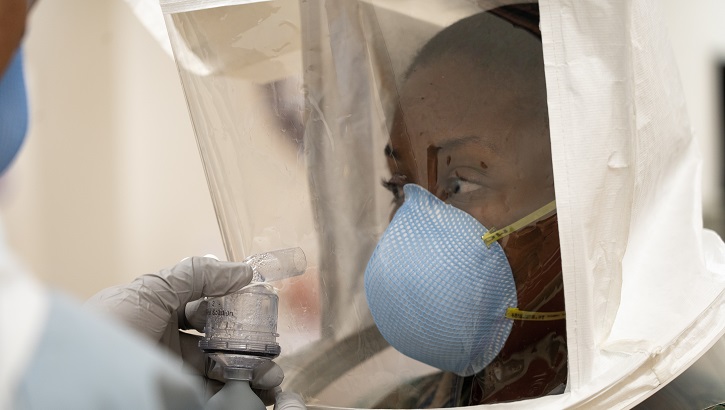
6 steps to get medical team members back in the fight
Pentagon leaders brief department's COVID-19 response to reporters
Article
7/2/2020
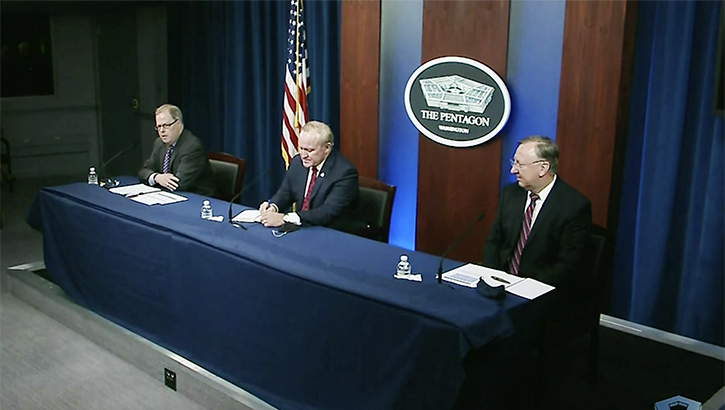
The COVID-19 pandemic affects each area of the nation differently. Local leaders at military installations decide protocols for public safety on a case-by-case basis. The Military Health System supports those leaders by providing health surveillance data, updated to reflect current information.





















.png)












No hay comentarios:
Publicar un comentario